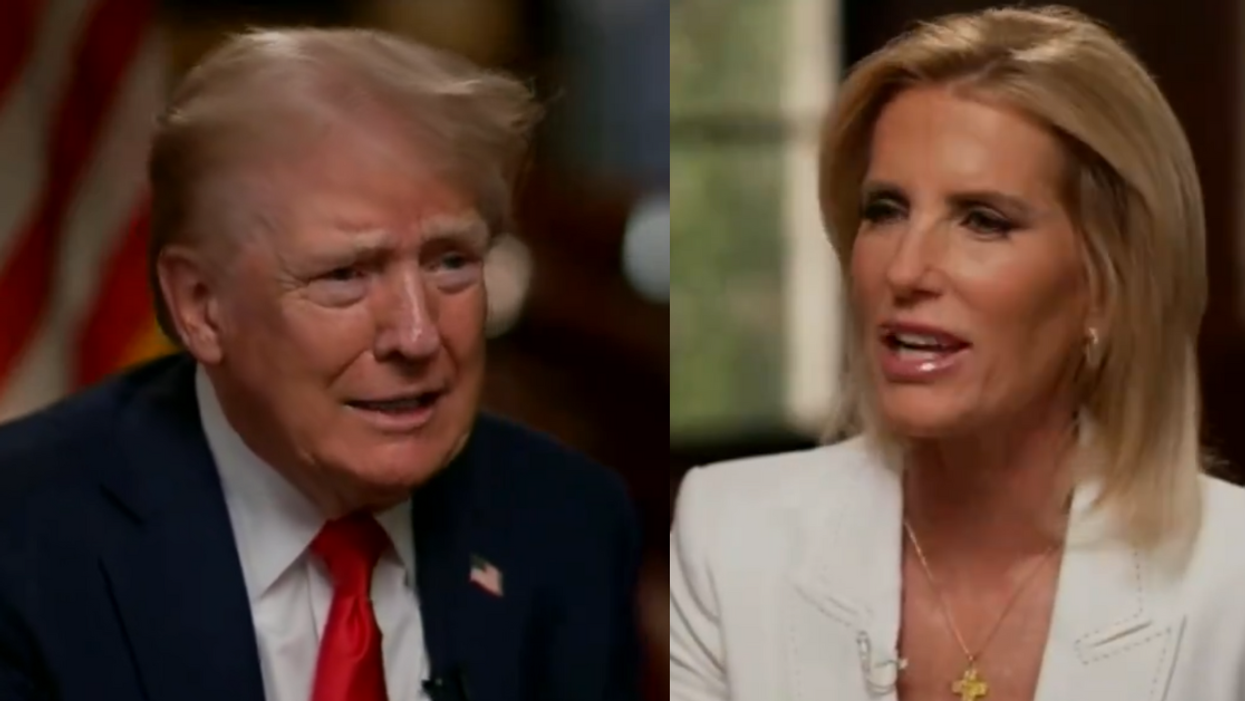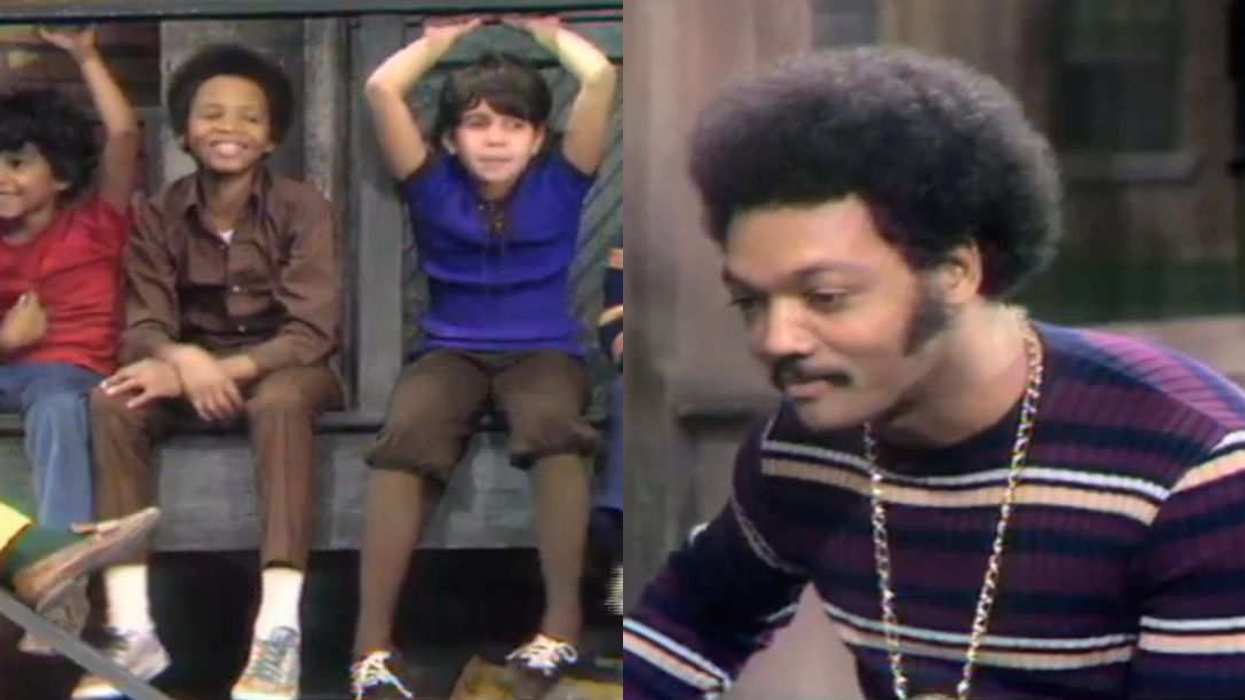Former President Donald Trump was criticized after defending his prior statements to a Christian group that they only have to vote in 2024 and never again because he'll "fix" the country.
The scandal erupted last week after Trump addressed Turning Point Action’s “Believers Summit” in Florida. He urged Christians to support him for a second term in his race against Vice President Kamala Harris, saying:
“You won’t have to do it anymore. … You got to get out and vote. In four years, you don’t have to vote again. We’ll have it fixed so good, you’re not going to have to vote."
The backlash has been fierce but Trump somehow worsened the controversy during an interview with Fox News personality Laura Ingraham, alleging that his audience has been "treated very badly" by the Biden administration.
Trump ultimately did little to address the backlash over his remarks, which some Democrats interpreted as suggesting there would be no more elections if he won. Instead, he repeatedly asserted that his comments were aimed at highlighting the low voter turnout among Christians and made offhand remarks questioning Jewish voters who support Democrats.
His response kicked off after Ingraham said he is being attacked "for ridiculous reasons" and added:
"They're saying that you said to the crowd of Christians that they won't have to vote in the future."
Ingraham gave him the floor—and things spiraled from there.
You can watch their exchange in the video below.
Trump replied with a standard boast about crowd size before attacking Jewish voters:
"Let me say what I mean by that. I had a tremendous crowd, speaking to Christians. This was a crowd that liked me a lot—I think I'm at 97% or something—and they're treated very badly by this administration, okay?"
"Catholics are treated unbelievably. They're like, persecuted, and if I might say before I go into the other: Jewish people, if you're Jewish and you vote for [President Joe Biden] or the Democrats or Kamala or whoever's going to run ... if you voted for her or the Democrats you should have your head examined because no one has ever been treated so badly."
He then issued the following defense for his remarks:
“That statement is very simple. I said, ‘Vote for me, you’re not going to have to do it ever again.’ It’s true, because we have to get the vote out. Christians are not known as a big voting group."
"They don't vote and I'm explaining that to them. You never vote. This time, vote. I'll straighten out the country and you won't have to vote anymore. I won't need your vote. You can go back to not voting."
Ingraham briefly interrupted with this follow-up question:
“You meant you won’t have to vote for you because you have four years in office. Is that what you meant? ... Just to be clear, it's being interpreted, as you're not surprised to hear, as, 'Well, they're never going to have another election.' Can you even just respond to that?"
To that, Trump replied:
“Christians do not vote well. They vote in very small percentages. Why? I don’t know. Maybe they’re disappointed in things that are happening."
"I say, ‘You don’t vote. I’m saying go out, you must vote.’ November 5 is going to be the most important election in the history of our country. We should have one-day voting, voter ID, and we should have paper ballots. But I said to the Christians in the room, thousands of them. I said, ‘Typically, Christians do not vote.’
“’Don’t worry about the future. You have to vote on Nov. 5. After that, you don’t have to worry about voting anymore. I don’t care, because we’re going to fix it. The country will be fixed … We won’t even need your vote anymore because, frankly, we will have such love, if you don't want to vote anymore, that's okay."
Trump's word salad only exposed him to further criticism.
Despite what Trump may say about Christians "not voting," the facts speak for themselves.
Trump has enjoyed widespread acceptance among evangelical Christian religious leaders in the United States despite never showing a particular affinity for religion, not to mention his well-documented record as a liar, adulterer, fraudster, and sexual predator.
Trump was baptized as a Presbyterian during his childhood but later stated during his presidency that he identified as a "non-denominational Christian."
Throughout his political tenure, he garnered strong support from evangelicals who attribute several conservative accomplishments to his leadership, including the Supreme Court's decision to overturn federal reproductive freedom protections.
This unwavering support from the evangelical community contributed significantly to his standing among Republican voters as a frontrunner for the party's nomination which was confirmed two weeks ago following months of campaigning as the presumptive nominee after his competition dropped out of the race.
According to CNN's 2020 exit polls, Protestants or other Christian voters made up 43% of the electorate, of which Donald Trump won 60% to Joe Biden's 39%. Biden won Catholics, which made up 25% of the electorate, 52%-47%.














 @chrissy64/Bluesky
@chrissy64/Bluesky @gerstkitty/Bluesky
@gerstkitty/Bluesky @katvanzan/Bluesky
@katvanzan/Bluesky @ghenguskahn/X
@ghenguskahn/X @theshawnstuckey.com/Bluesky
@theshawnstuckey.com/Bluesky
 @starlightwishes/Bluesky
@starlightwishes/Bluesky

